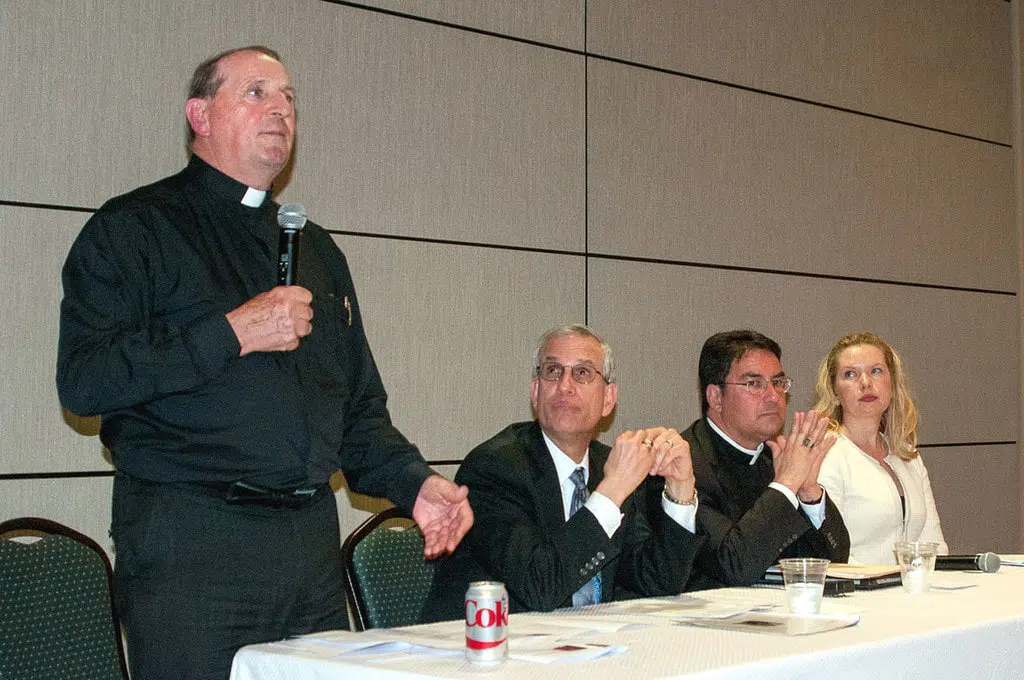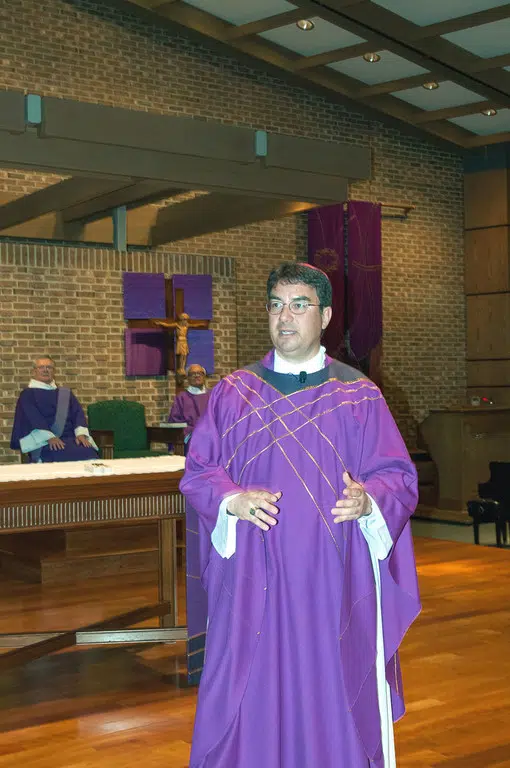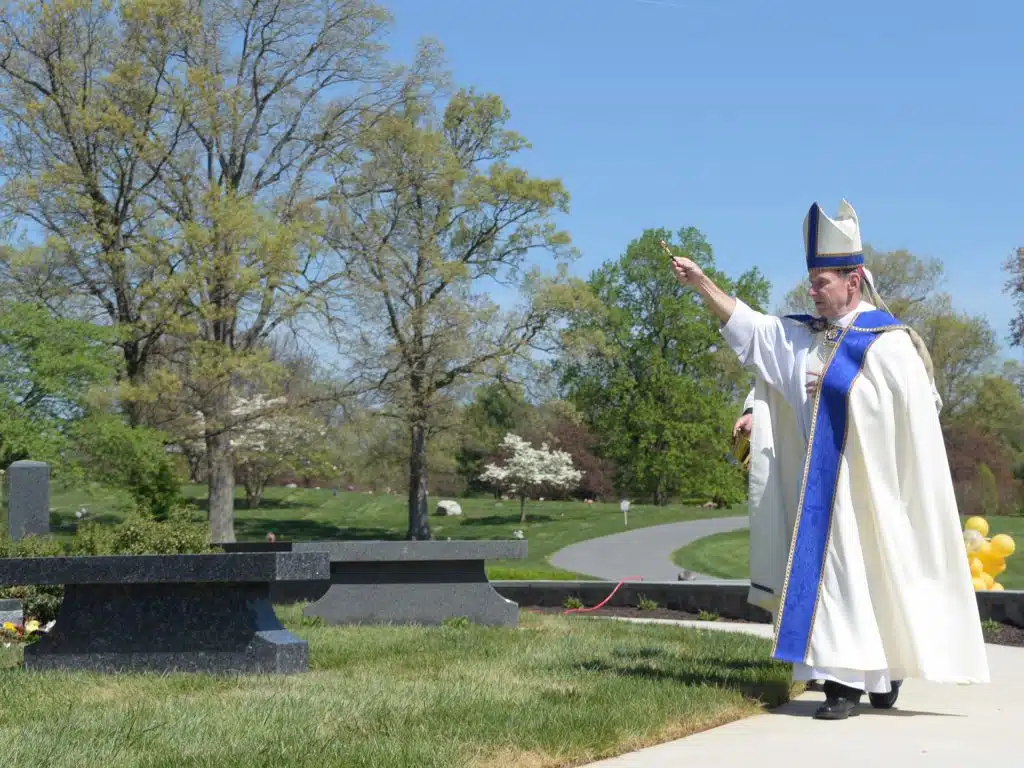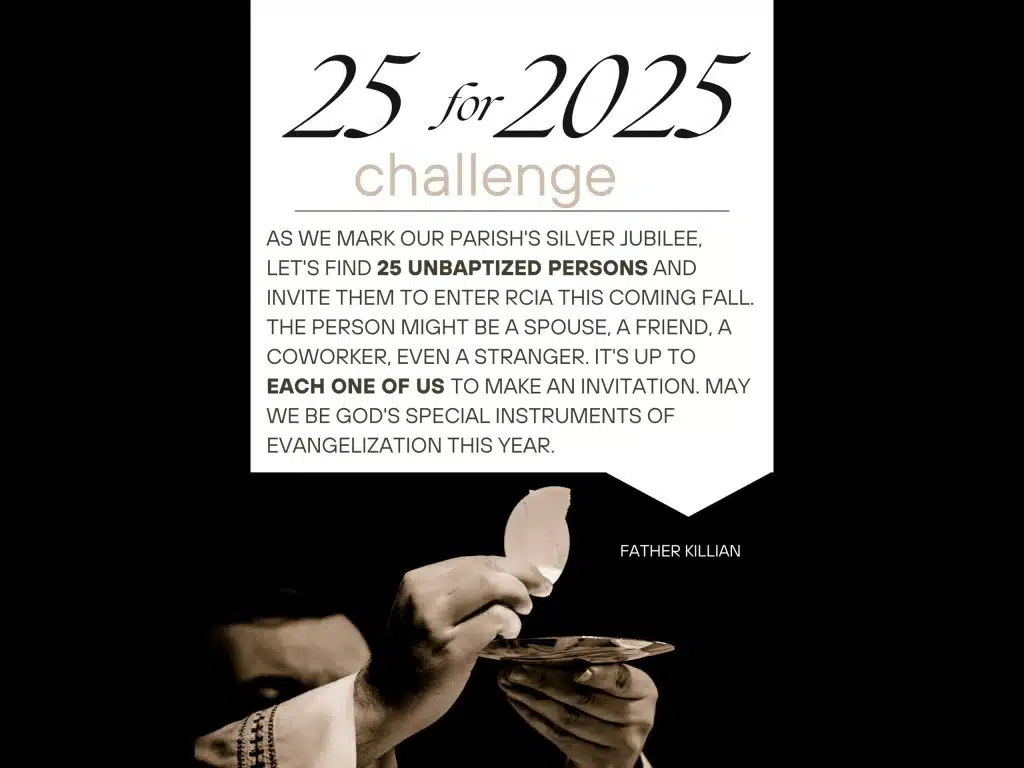Vatican II’s “Gaudium et Spes,” “The Pastoral Constitution on
the Church in the Modern World,” was a document promulgated
by Pope Paul VI in 1965 that pushed the church to speak to
the world on matters such as social justice and peace.
A phrase in that document, “Peace is not merely the absence
of war,” was a constant theme Feb. 20 at the 10th annual
Peace Symposium, “Make Me a Channel of Your Peace: What Pope
Francis Asks of us as Peacemakers,” at Good Shepherd Church
in Alexandria.
Bishop Oscar Cantú of Las Cruces, N.M. was the keynote
speaker at the symposium sponsored by the Arlington Diocese
Peace and Justice Commission.
The evening began with Mass celebrated by Bishop
Cantú, and concelebrated by Father Thomas P. Ferguson,
diocesan vicar general and moderator of the curia, and Peace
and Justice Chairman Father Gerry Creedon, pastor of Holy
Family Church in Dale City.
In his keynote address to hundreds of attendees in Creedon
Hall, Bishop Cantú, who was born in Houston to Mexican
parents, said that he traveled with Pope Francis to Mexico
during the pope’s recent visit.
“What does Pope Francis ask of us as peacemakers?” asked the
bishop.
He said the pope wants us to work for peace because “peace is
not just the absence of war.
“A peace that is not the result of internal development is
doomed,” said Bishop Cantú.
The bishop said that Mexico is sick. Corruption, violence,
economic issues and drugs lead to the migration of families
from their home to other countries. It does not make for a
healthy society, he said.
True peace, said the bishop, is a long-term project, and each
of us is called upon to be a peacemaker.
“We must be champions of justice,” he said, adding that we
must remove the underlying cause of conflict.
One of the root causes of the problem is drugs, said Bishop
Cantú.
“Drugs have corroded society in Central America,” he said.
But who’s buying the drugs?
“It’s us,” he said. “It’s America.”
The bishop said that people are the same wherever they live;
they want peace and justice. If people had stability and
peace at home they would not leave, he added.
“They’re looking for the American dream in their own
country,” he said.
Of course, Central and South America are not the only areas
of the world where people are fleeing oppression.
“The Middle East is in chaos,” said Bishop Cantú.
“Peace in Syria and Iraq is difficult, but not impossible,”
he said.
Humanitarian assistance is needed. The bishop said that
Lebanon and Jordan have been “remarkably generous,” in taking
refugees, but they can’t do it all.
“ISIS wants to cleanse the area of Christians,” he said,
adding that they also want to rid the region of Muslims who
do not think the way they do.
He said that only peace will end the refugee crisis in the
Middle East.
“What does Pope Francis want us to do to work for peace?”
asked Bishop Cantú.
He wants us to pray for peace, to urge policy makers to
receive refugees, and he wants everyone to advocate for
justice in our country and the world.
Missionhurst Father Plutarco Belanggoy called Bishop
Cantú’s talk “very comprehensive. He spoke about the
root of the problem.”
A panel discussion with Bishop Cantú, Stephen
Colecchi, director of the U.S. Conference of Catholic
Bishops’ office of international justice and peace, and
Ashley Feasley, director of advocacy for the Catholic Legal
Immigration Network (CLINIC), was moderated by Father
Creedon.
Colecchi said that most people think that about 20 to 25
percent of the federal budget goes to international
poverty-reduction programs and humanitarian aid. Actually, he
said, the number is less than 1 percent.
He said more funding is needed for peacekeeping operations,
development assistance, maternal and child health programs,
and disaster assistance.
Feasley’s talk centered on migrants and refugees in this
country. She said the government’s response to the
immigration crisis has been the enforcement of existing laws.
The Department of Homeland Security’s Immigration and Customs
Enforcement office has been housing families in detention
centers around the country. It costs $300 per person, per
night to keep people in these centers, she said, and is
inhumane and violates basic human rights.
Feasley urged people to write to their representatives to end
family detention.
After the symposium, Good Shepherd parishioner Carolyn Scott
said that she has a “profound sense of peace in my heart,”
but she is distressed by the treatment of refugees in this
country.
Perhaps summarizing much of the attitude of some in this
country, Bishop Cantú said that he heard a congressman
talk on television about the need to send refugees back “to
the loving embrace of their families.”
“Are you kidding me?” he yelled at the TV. “We’re not sending
them back to Mayberry. We’re sending them back to a violent
place.”




